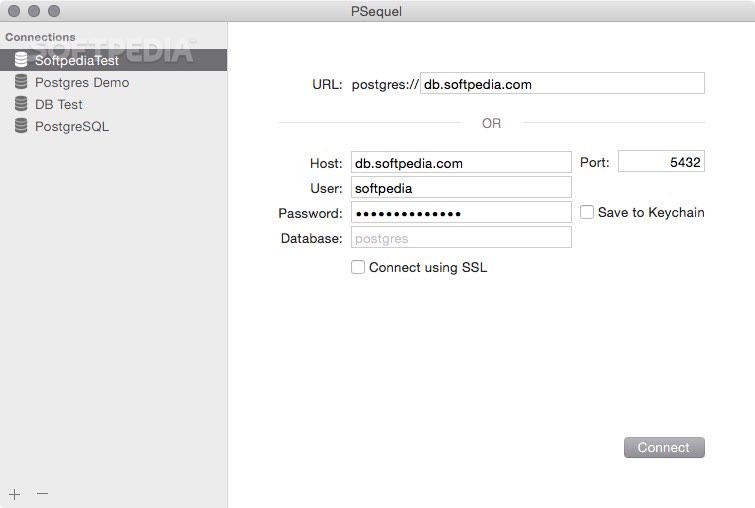

Taking all things into consideration, PSequel is a practical and small PostgreSQL manager that provides you with a streamlined user interface and most basic functions you need to manage your databases.Path: /Applications/PSequel.app/Contents/MacOS/PSequelĪnonymous UUID: FADC7697-98CC-3EE8-0151-F8451E76D790

When you fist start the application, PSequel’s main window displays a panel with all servers and connections, and after the connection is established, you can easily access database objects such as tables and schemas. PSequel’s interface is stylish and streamlined, with a clean layout that resembles most other PostgreSQL GUIs. Applies the same design guidelines followed by most other PostgreSQL management utilities To start working with PSequel, you must undertake a simple process that doesn’t require any advanced configurations: simply input the hostname and port number for the server you want to connect to, and, upon entering the username and password, you will be able to view your database's contents.

#Psequel alternative software
Straight-out-of-the-box usability and minimal configuration requiredįrom the get-go, PSequel’s advantage is the fact that unlike many other PostgreSQL GUI tools it is not web-based, neither is it Java-based, and that means that you can use it on your Mac without necessarily being dependent on 3rd party software or an internet connection for managing a database. Moreover, the PSequel utility enables you to effortlessly run various SQL commands, create tables, as well as connect to, view, and manage your databases using custom queries. PSequel is a Swift based standalone OS X client application that provides a simple and straightforward PostgreSQL GUI designed to help you perform a number of basic operations using a PostgreSQL database.

#Psequel alternative for mac os x
Simple and practical PostgreSQL GUI for Mac OS X PostgreSQL is a well known cross-platform ORDBMS (short for object-relational database management system) that can be used as a database management solution on most popular operating systems such as Mac OS X, Windows, Linux, and FreeBSD.


 0 kommentar(er)
0 kommentar(er)
